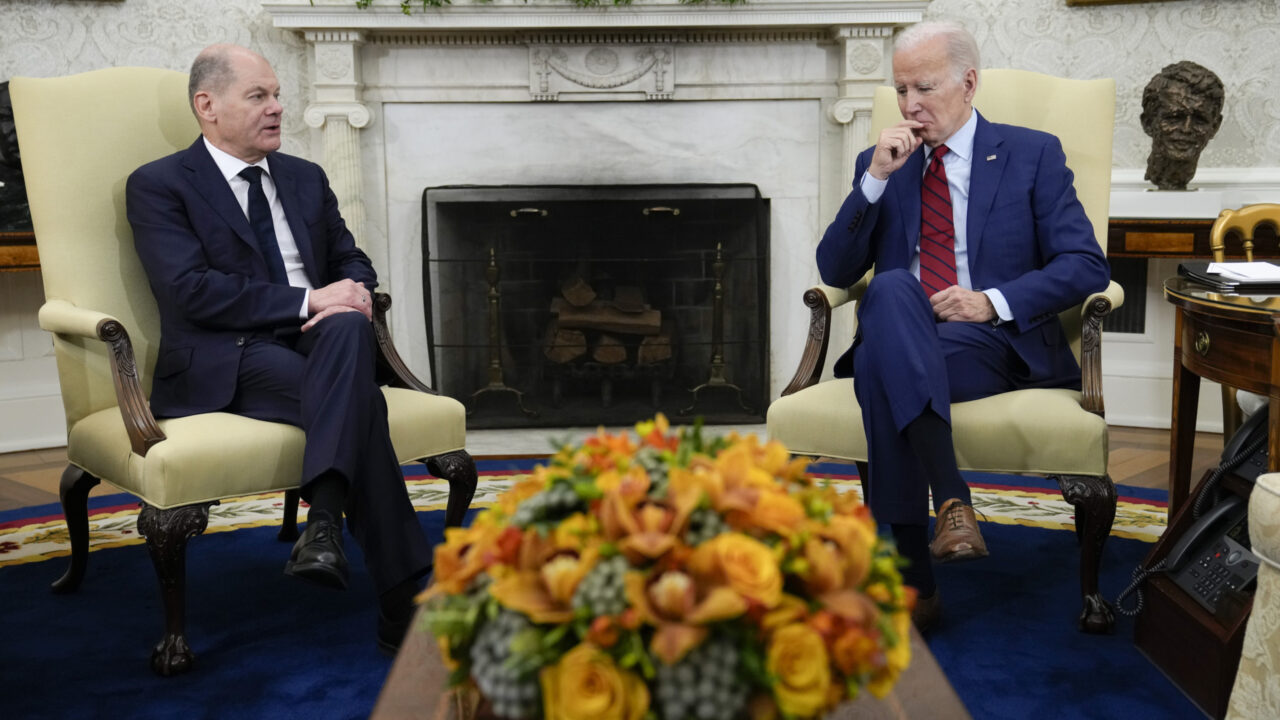The German scapegoat: Berlin’s inevitable role in the US presidential election
Germany cannot avoid being dragged into election debates in the US. On defence, it should focus on its own national security interests
The sun is shining over the Atlantic, but it would be foolish to ignore the gathering clouds. This is how German officials describe American politics, the coming Republican presidential primaries, and the 2024 US presidential election. One question nagging foreign policy officials in Berlin these days is whether Germany can avoid becoming a partisan issue in America’s domestic electoral debates. Earlier this month on Twitter, the Republican senator from Ohio, J.D. Vance, called Germany’s Ukraine policy a disgrace and suggested that the Zeitenwende promise had “materialized into manure”. The German ambassador to the United States, Emily Haber, hit back, reminding the freshman senator of the €100 billion special fund for the German armed forces, the coming procurements of weapons, and the energy shift away from Russian gas. To no avail – her response was met with more outrage, this time with reinforcements from Richard Grenell, Trump’s former ambassador to Berlin.
The Republican argument, espoused so clearly by Vance, refers to a longstanding point of contention between Berlin and Washington: the German government has not made good on its target to spend 2 per cent of GDP on its military and to modernise the German armed forces. One year after Russia’s invasion of Ukraine, not one cent of the special fund has actually reached the Bundeswehr. Germany did not meet the 2 per cent target last year and will likely miss it by a good 0.5 per cent in 2023. Olaf Scholz’s government has not done enough to reform the ponderous and over-bureaucratised military procurement system and to come up with a coherent and strategic armament policy linking the Bundeswehr, politics, and industry.
However, when it comes to support of Ukraine, in terms of the overall volume and the speed of delivery, Germany’s record is better than many think. Germany is the number one continental provider of military, financial, and humanitarian support to Ukraine in Europe. It has delivered more weapons, military equipment, and ammunition than any other country in continental Europe. And German weapons are making a difference on the battlefield.
Germany’s track record is clearly better than the Republicans give it credit for. But the Republican MAGA crowd’s narrative should not come as a surprise. Even if Germany reached all its defence commitments, it would still remain a scapegoat in the Republican primaries and general election.
Over the last 20 years, Germany has been unable to avoid being partisan. Regardless of which party governs in Berlin, Germany’s relationships with Republican presidents have been frosty, while those with Democratic administrations have been characterised by affection. Observers only need to contrast Merkel’s and Obama’s friendship or the Scholz-Biden bromance with the poor relationships between Berlin and Washington throughout the early Bush years and the Trump administration.
For Republicans, Germany is useful fodder in their electoral crusade against the Democratic party’s “weakness and wokeness”
For Republicans, Germany is useful fodder in their electoral crusade against the Democratic party’s “weakness and wokeness”. In this narrative, irrespective of the issue area and the actual policy of his administration, the Republicans portray Biden as weak. Naturally, this extends to his foreign policy: Biden is depicted as weak on China, on Russia and Ukraine, on the Middle East, and, most importantly, on allies such as Germany, allowing them to freeload and take advantage of America’s security guarantees and unfair trade agreements.
On security, Germany fits perfectly into the binary US debate of tradeoffs between military support for Ukraine and domestic priorities: it is classed as a wealthy freeloader which should be paying for the war in its own back garden, freeing up US resources for other needs. On trade, Germany is seen as ripping the US off – its trade deficit with Germany is America’s third largest. In America’s quest to curb China’s economic power, Berlin is considered too economically dependent on China. And on social and climate policies – as too woke. By virtue of being closer to the progressive Democrats on social policies, education, and climate, Germany is a foreign manifestation of woke America. Bernie Sanders has repeatedly used German policies as models of successful, progressive social and educational policies that the US should learn from.
Just like during the Trump administration, many of these arguments are less about structured foreign policy thinking and more about creating a narrative which pits the Republicans against the so-called woke globalist elite.
There is not much Germany can do about being dragged into the Republican nationalist outbidding. Rather than getting caught up in this, it should focus on its own national security interests and step up military spending and the modernisation of the Bundeswehr in a quick and sustainable manner. This would also put Germany in a better position if a hostile Republican administration comes to power in 2024. Germany’s new defence minister, Boris Pistorius, looks determined to move things forward. He is pushing for an extra €10 billion for the regular defence budget to ensure sustainability after the special fund has been exhausted, wants to reform the procurement process, and restructure Germany’s defence ministry to ensure a more effective implementation of the Zeitenwende. This is a good start. Whether the cabinet and the Bundestag backs him up will be a test of Germany’s seriousness.
The European Council on Foreign Relations does not take collective positions. ECFR publications only represent the views of their individual authors.



